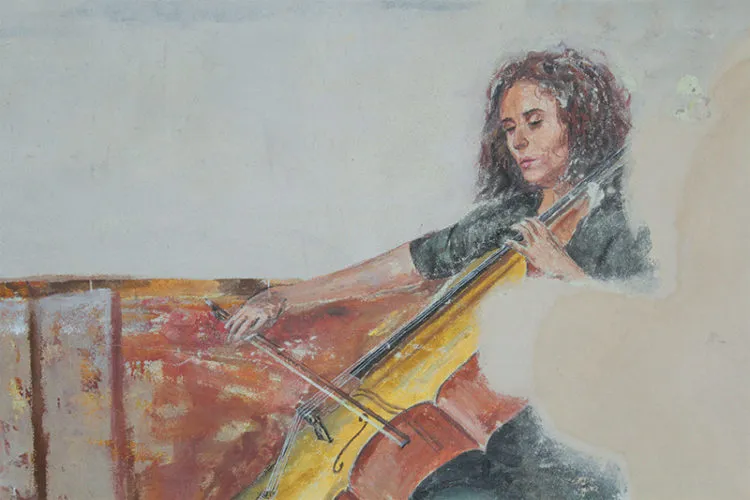
By: Morgan Mueller
Pursuing the mastery of an instrument can be an exciting yet daunting task. Where do you even start? Students in particular have a unique type of challenge, as it can be difficult for full time academics to make space in their life for the time commitment of music learning. So, let’s break it down into some simple tips and tricks to make this pastime seem way more doable!
- Become familiar with instrument mechanics
Whether you are picking up the guitar, the piano, or a little bit of the drums, understanding how the instrument operates is the most important place to start. Play around with different keys or strings to see what sounds are made by various combinations. What sounds good to you? Learn how the different knobs, pedals, keys, etc. function. Experimentation is the best way to become comfortable with your chosen instrument.
- Find music you want to play
This is a great way to start learning simple chord combinations and progressions. If you’re excited by the songs you’re learning it makes practicing so much more enjoyable! It is so satisfying when you can play the song just like your favorite artist. Look to classic rock or popular music for some beginner level songs to learn! After practicing at your own speed, consider playing with a backing track or even along with the studio recording of the song for the full effect.
- Utilize online resources
The good thing about deciding to start an instrument in today’s age is that there’s a massive selection of online resources that makes the learning process easier. Ultimate Guitar tabs, YouTube, Yousician.com, and Musicnotes.com are all free resources. Don’t be afraid to look up the specific technique, chord, or tab you are looking for because chances are, someone out there has a tutorial on it.
- Don’t shy away from music theory
I know music theory sounds complicated and confusing. What even is that? All it is is an organization of the sounds and structures that make up the language of music, such as notes, chords, scales, rhythm, etc. Understanding notes makes reading sheet music or chords way easier, and practicing scales daily can hugely improve finger dexterity. Don’t discount learning the more technical side of an instrument, because it can really pay off!
- Consistency is key (but so are breaks)
Consistency is one of the most popular pieces of advice from musicians of all ages. It is said that beginners should try to practice for 10-15 minutes at least five times per week. If you think about it in comparison to another activity like mindlessly scrolling through TikTok, we probably all do have the time to play daily. Jamming a little bit each day can be instrumental (no pun intended) to gaining proficient muscle memory and muscle strength. But, careful, there’s no reason to get on a Whiplash level of obsession…
- Track your progress
Long-term progress can be hard to discern unless you look at the big picture. One way to do this is by taking a video of your skills. By recording yourself, you can identify areas that need improvement from the audience’s perspective. Another tactic for focusing on problem areas is to keep a journal and jot down things you’re struggling with. Progress tracking is great to have as a motivator that you are, in fact, improving!
- Check in with Yourself
Don’t get discouraged, music learning has its ups and downs. If it was super easy, everyone would be doing it! Remember that effort is more important than becoming fluent overnight. If you’ve reached a challenging point, congratulations, you’re progressing! Mistakes are part of the learning process, and if you can overcome those difficulties that is how you grow as an artist. Try to end your practice sessions with something positive like a piece you know well or even a scale you’re getting good at. Remember that learning an instrument for fun should be just that: fun!
Now, here is some advice from student musicians at Fordham:
“I use it as an alternative to going on my phone to help unwind after class”
“Challenge yourself to cross the bridge past knowing a solid 10-15 songs, because that’s when you will become a truly advanced guitar player”
“Being self taught on an instrument should be a low pressure, zero stress experience! No one’s going to be upset with you if you make mistakes”
“Day by day it will start to click a little bit more and that is the most rewarding feeling ever”
At the end of the day, your instrument is the vehicle for your musical ideas. Learning music is proven to be one of the most effective ways to maintain a healthy brain, since it engages all the major parts of our central nervous system. It should be a fun experience and while there are plenty of conventions with music theory, there really are no rules at the end of the day!
Happy jamming 🙂



